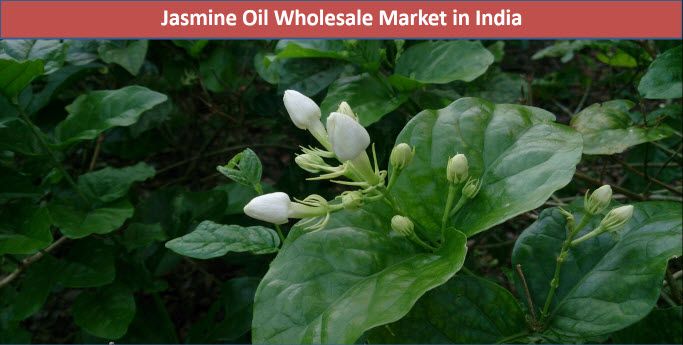Blogs

Jasmine Oil Wholesale Market in India
When it comes to jasmine oil, there are a number of things to consider. There is the extraction process and its therapeutic properties. Then there is the organic certification and the exports from India. You need to ensure that you are buying a quality product, because it can be expensive.
History of Jasmine Oil
Jasmine Oil has a rich history dating back thousands of years. The oil was revered by ancient Chinese royalty, and its scent has been used for centuries to treat coughs and insomnia. It is also a good mood-booster. A small amount of the oil, mixed with a carrier oil, is a great choice for aromatherapy.
What are Therapeutic properties of Jasmine Oil?
Jasmine oil is produced from the flowers of the Jasminum officinale plant. Its odour is a favorite in aromatherapy. This aromatic substance can improve the mood, increase energy and boost the immune system. In addition, it may also have anti-bacterial and antiseptic properties.
For centuries, people have used jasmine flowers to help relieve insomnia and other ailments. They are believed to have aphrodisiac properties, and are often used to decorate newlyweds' bedrooms. But there is little scientific evidence to support these claims.
Many essential oils have beneficial effects on the body. Lime oil can help relieve pain and promote blood circulation. Lemon oil is a sedative, astringent and antibacterial, and can be helpful with colds, sinus infections and respiratory infections.
Eucalyptus oil can be used to ease fever, headache, cough, and sore throat. It is also effective for colds, catarrhal conditions, and sinusitis.
What are Aromatherapy uses of Jasmine Oil?
Jasmine oil is one of the most popular essential oils used in aromatherapy. It is easy to obtain, and has a wide range of uses. You can diffuse it, or you can use it as a topical treatment. However, you must remember that the oil has many side effects, and you must use it with care.
When a person has a cold, jasmine oil can help alleviate symptoms. It is also effective against respiratory infections. In addition, it may have an expectorant effect and can promote relaxation.
It is believed that jasmine flower oil may stimulate the release of serotonin, which helps regulate mood and calm feelings. The oil has been found to relieve stress and depression. Besides, it can increase mental alertness, because of the increased oxygen in the blood.
Extraction Process of Jasmine Oil
Jasmine oil is a very popular ingredient in the world of aromatherapy. It has been used to treat skin conditions, sprains, muscular pain, and sore throats. In addition, jasmine oil is good for relieving the symptoms of acne.
The extraction process for jasmine oil involves the use of a volatile solvent. This method can yield a higher concentration of the oil.
Traditionally, Jasmine flowers were extracted using a method known as enfleurage. However, this method is not appropriate for the delicate constitution of Jasmine flowers. Steam distillation would be too harsh for the flower and would ruin its fragrance.
Another method for extracting jasmine is the supercritical CO2 method. This is also known as SFE-CO 2. This is a good extraction method for the production of high quality extract.
The Bottom Line
India is home to the majority of Jasmine oil manufacturers. Jasmine plants grow well in the Indian climate. They are an evergreen climbing shrub with dark green leaves. During the growing season, Jasmine flowers are picked and sent to nearby oil extraction factories.
Jasmine oil is one of the most popular and widely used oils in the world for its romantic aroma. It is also very useful for massages. In addition, it helps reduce stress and tension.

